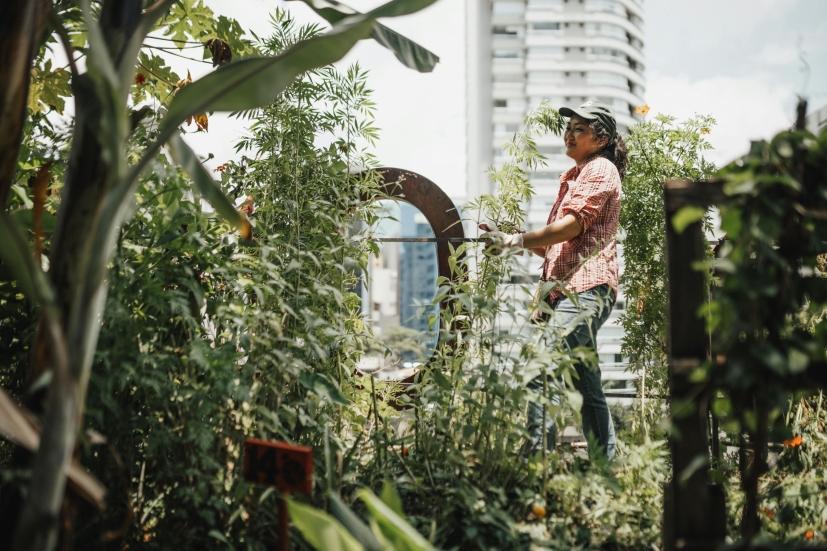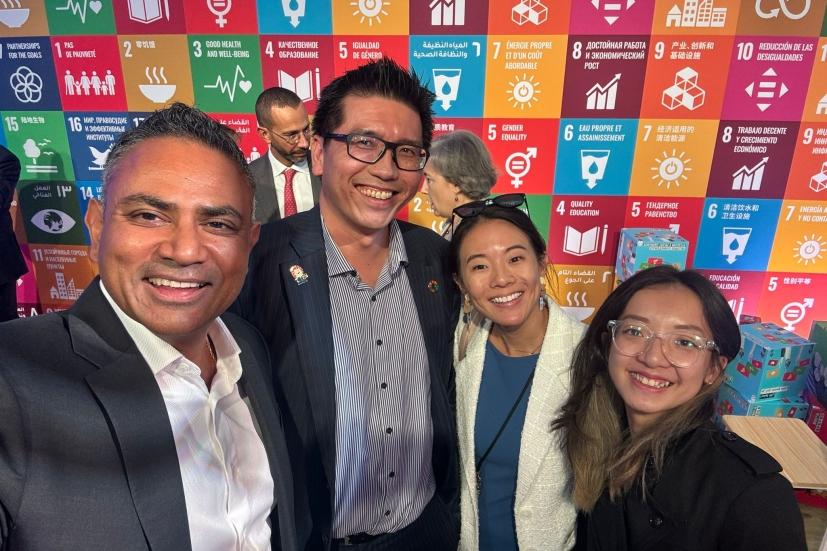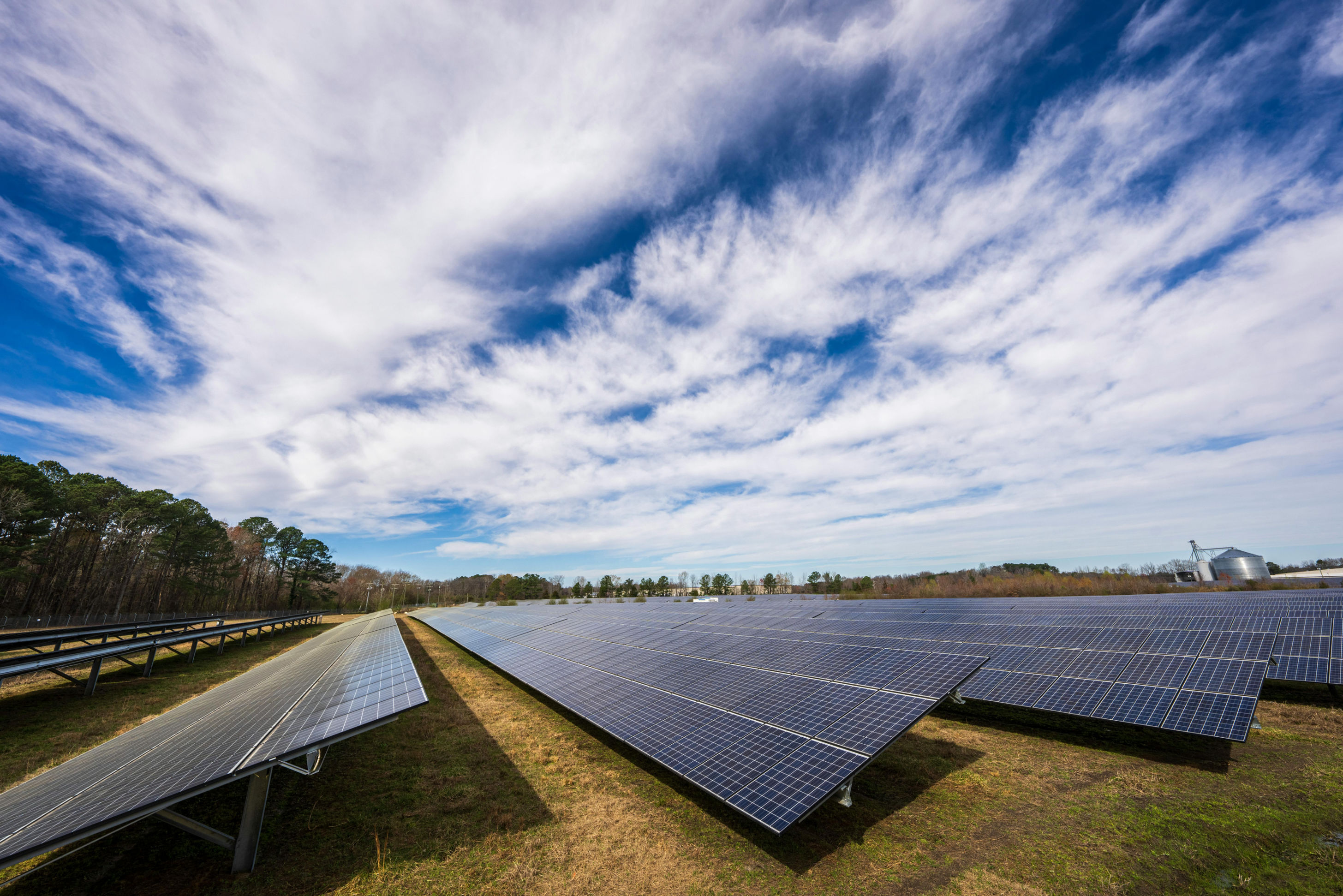Finding Harmony: Innovative Paths for a Sustainable Future
Change, adapt, mitigate, innovate. These are all verbs that I come across frequently in my roles as a professor of urban climate and Working Group Co-Chair of the Intergovernmental Panel on Climate Change Working Group II. Indeed, these are important terms for climate action and sustainability. In my final blog post for Our Better World’s Our Better Earth series under the theme ‘Reimagine,’ I wish to highlight the words ‘innovate’ and ‘innovation,’ which require us to rethink our current way of life.
I fear that we may be looking at innovation with a very narrow framework that doesn’t lead to resilience or successful outcomes in sustainability.
When we think of innovation in sustainability, our minds often jump to the technologies that surround us — new gadgets (perhaps the ones you are using now to read this), smarter infrastructure that is more energy- or water-efficient, or cutting-edge and scalable technologies that can reduce greenhouse emissions — such as electric vehicles that are increasing in number on our roads today.
But I’d argue that true innovation in sustainability extends beyond just engineered technological advancement. It lies in how we — as individuals and communities — reshape our societies, our relationships with one another, and our connection with nature.
As we face pressing global challenges like climate change and disruption, it is crucial to recognise that innovation in how we organize and interact, both socially and environmentally, can be just as powerful as any technological breakthrough.
Innovation can be about people rediscovering harmony — building sustainable systems that allow people and the environment to thrive together. This is much like ecosystems in nature that serve a function and purpose that aren’t limited to a single plant or animal species.

A person who changes their thinking from short- to long-term can innovate by translating their thoughts into actions and deeds. It could be as simple as making a conscious and consistent effort to consume plant-based foods more often, or taking public transportation and walking more frequently.
Someone playing this new solo tune of innovation will sound discordant. However, harmony exists with more people learning or hearing about the new notes as they are played. If a community of sustainable innovators is built — by talking, engaging, and working together — this new ecosystem can and will do great things together.
Beyond Singapore, in South-east Asia, the importance of community-based initiatives has been demonstrated by many grassroots efforts to promote sustainable farming, water conservation, indigenous knowledge and practices — all of which are important and innovative outcomes that enable climate adaptation.
Last year, the Our Better Earth - Rebuild story talk event celebrated several communities that dare to innovate for sustainability. This kind of innovation is not about inventing new technology; more importantly, it’s about reimagining our relationship with nature and learning from practices that have stood the test of time.
This individual effort in thinking about the environment is not just restricted to community action in South-east Asia. I witnessed it last month when I visited New York City during its Climate Week, where I attended and spoke at several events focused on supporting and empowering scalable solutions to move the needle for climate action.

The different audiences I engaged with all showed this innovative streak in thinking of ways to support at-risk communities — from repeating calls for a tax on air travel and sea shipping that can fund climate-vulnerable small island states, to devising new and innovative ways of scaling finance to support nature-based solutions and climate adaptation measures. Thinking and acting innovatively is no longer just the domain of environmentalists, and that is a very welcome and harmonious change!
What this shows us is that innovation is no longer limited to the areas of technology or finance. Again, I stress that it is reimagining how we think and engage with the climate-disrupted world around us. It is about shifting our mindset to understand that sustainability is not just a distant goal but a collective responsibility.
At the end of the day, creating a sustainable future is not just about achieving a set of environmental targets — it is about finding harmony in the discordant world around us. It is about aligning our financial systems, our communities, and our philosophies with the natural world, and understanding that human progress and development do not have to come at the large expense of the planet. By innovating in finance, technology, and most importantly, our attitudes, we can overcome the chaos of the present and move towards a more balanced, harmonious future.
As I sign off, let me conclude by saying that a better world is possible through our actions. We already have the tools, knowledge and inspiration we need. Now is the time to act and build that future together.





